
It was only up until the beginning of this year that I suffered from awful stomach issues almost every single day. I remember it starting around my third year of college and sadly turned out to be the norm. I became so used to feeling bloated, gassy and uncomfortable most days of the week, and got stomach aches at random times throughout the day.
I went to school for nutrition, but ironically had the most difficult time figuring out what was going on with my own body. It was frustrating.
It wasn’t hard for me to stay physically active during college. I played competitive sports since I was young and working out continues to be a great stress reliever and start to my day. At the time of these stomach issues, I wasn’t necessarily able to reach the goals I had with fitness because of how my body was reacting to the foods I was eating. In lieu of finding a diet that worked for me and to become more familiar with the many diets people followed for my future career as a dietitian, I experimented with my fair share of diets: high-protein, high-carb, low-fat, vegetarian, low calorie, macro counting (way too stressful) … it seemed like I tried them all and nothing proved to work exceptionally well.
I tried pinpointing which foods gave me symptoms—it didn’t help. The bloating was all too regular, even when I switched up the foods I was eating. I didn’t go see a doctor because what could he/she tell me that I couldn’t figure out for myself? (I wasn’t looking for just a surface-level check-up that most doctors provide. Plus, Western Medicine doesn’t necessarily focus on the nutrition side of things). For months I just lived with the fact I was bloated and there wasn’t anything I could do about it.
Most mornings were great, but as the day went on it would progressively get worse and generally by the end of each day I would be at the peak of feeling bloated and uncomfortable.
At the beginning of 2017 I was approached by a health and wellness company to help promote their 7-day sugar detox. I loved the idea behind resetting your body from the toxic effects of added sugars in packaged foods and quickly got on board. November/December 2016 was also around the time I started getting more into podcasts, specifically Bulletproof Radio, and became better educated on the benefits of eating a higher [healthy] fat diet.
I received the results back from the Pinnertest, a food intolerance test I took to gauge the foods I was having a hard time digesting. At this point, I was ready to try anything that would tell me the foods I should stay away from. It recognized that I was intolerant to cow’s milk, kidney beans, barley and beef. For the most part, it was spot on detecting the foods that upset my stomach.
Starting the year with an entirely different diet than I was used to actually made me really hopeful. It was the first time I was truly excited to test out a new routine.
Beginning January with the 7-day sugar detox was probably the hardest thing I’ve done in a while. The guidelines were: unlimited veggies, keep fruit to a minimum of 1-2 servings per day and remove all added sugars, including natural sources of sugar like dates, coconut sugar, honey, maple syrup and stevia (I chose all the above, but feel free to be as strict as you’d like on your own detox). It was a little difficult at first finding which foods I could even have that fit those guidelines, but I eventually made it work. Doing a sugar detox like this really puts into perspective how much sugar sneaks its way into so many staple items and helps you understand how to look at food labels by focusing less on the numbers, and more so on the ingredient lists.
Along with taking part in the 7-day sugar detox, significantly upping my healthy fats (i.e. avocados, avocado oil, olive oil, coconut oil, whole eggs, nuts, homemade nut milk, coconut butter, MCT oil), and removing the foods I was shown to be intolerant to on the Pinnertest, I also made the decision to remove cruciferous vegetables (broccoli, cauliflower, brussel sprouts), most legumes (especially garbanzo beans), almonds/almond butter (I noticed I would get bloated immediately after eating), protein powders (a friend recommended I do this because most on the market are highly processed—even vegan powders!), soy (I was eating a lot of tofu), garlic and onion (rich sources of fructans—responsible for giving those sensitive to fructans abdominal pain, discomfort, flatulence and bloating) to see if any of those foods were causing my digestive discomfort. One last major change I implemented was decreasing my portion sizes during meals. I was so used to overloading my plate and feeling obligated to finish every last bite, but that was creating wayyy too much work for my digestive system at one time.
After the first 7 days were up, I noticed quite a few changes. First, there was a huge difference in my taste bud sensitivity. Fruit was sweeter, I didn’t crave sugar nearly as much and I had more energy than before starting the detox. I felt SO good. I also continued the higher fat and elimination diet post-detox because I felt so clear, energized, not bloated, and I even noticed I had more stamina at the gym. It was the first time in years I truly felt better than ever with close to zero upset stomachs/digestive issues.
I realized that I had been eating an excessive amount of protein in my previous diet and that may have partially contributed to my digestion issues. I’d have 1-2 servings of protein powder (vegan) almost every single day for the past 3 years because I was working out and lifting weights, which required more protein to help build more muscle, right? Well, to a certain point. Both whole food sources of protein and protein supplements have advantages and disadvantages and are even digested differently in a lot of people. After removing protein powders, I supplemented with collagen peptides (I like Vital Proteins) because it’s light on my stomach, easily digested, comes from grass-fed pasture-raised cows and has only one ingredient. Benefits include healthy skin, hair, nails, joints, tendons, cartilage and it helps to heal the gut. At first, I was worried about not getting enough protein in my diet, but three weeks into my new regimen, I noticed an increase in my muscle mass. To this day, I continue to take collagen peptides in place of protein powder and would definitely recommend!
List of Foods I Removed:
Dairy (I still have goat cheese every now and then because I don’t feel any symptoms with goat’s milk)
Soy
Garbanzo beans
Kidney beans
Cruciferous vegetables (broccoli, cauliflower, Brussel sprouts)
Garlic
Onions
Almond butter
Protein powders
Carbonated drinks (i.e. kombucha)
Healing my gut was my number one priority at the beginning of the year, so I found and incorporated a probiotic supplement into my daily routine. Probiotics are incredible for the gut; they are the good bacteria we need to survive and stay healthy. They’re shown to offer a multitude of benefits to the body, including improved digestion, helping with healing inflammation, boosting the immune system and producing healthy skin. I use Silver Fern Brand Probiotics.
Overall, the feelings of being bloated all day every day has thankfully subsided and I feel better than I ever have. I owe it to removing the foods I found to have a damaging effect on my gut, eating a higher fat diet, and significantly lowering my sugar intake.
The foods I incorporate now: kombucha from time to time- I love the taste and I’ll only have it in small amounts, broccolini- I’ve found it doesn’t bother my stomach because there’s less florets than regular broccoli, sprouted hummus seems to be fine in small amounts, sprouted almonds are easier for me to digest.
I hope this helps anyone struggling with the same issues. I know how frustrating it can be to not be able to pinpoint the cause of your digestive issues. If this is the case, I recommend finding a dietitian or other health care specialist to decide what may be the contributing factors to YOUR indigestion. Want some more information on the 7-day sugar detox? Click here!
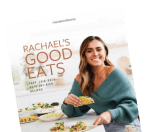


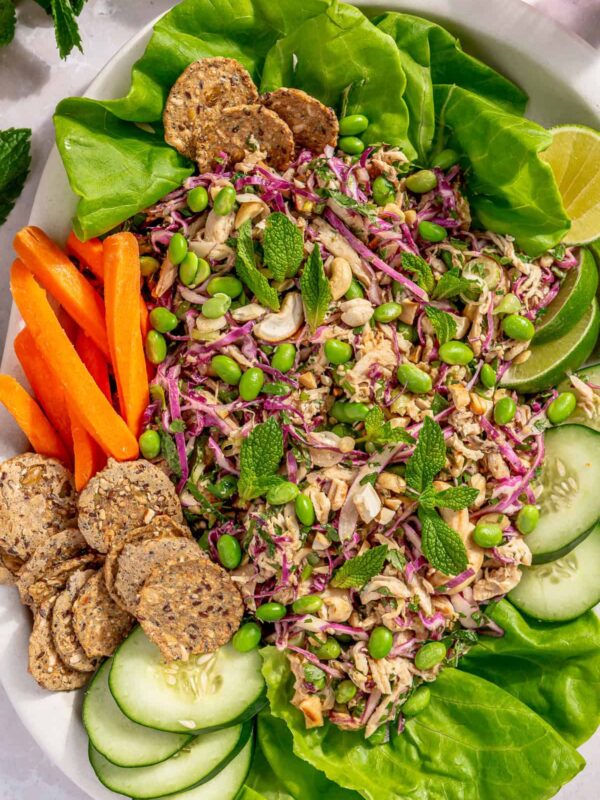
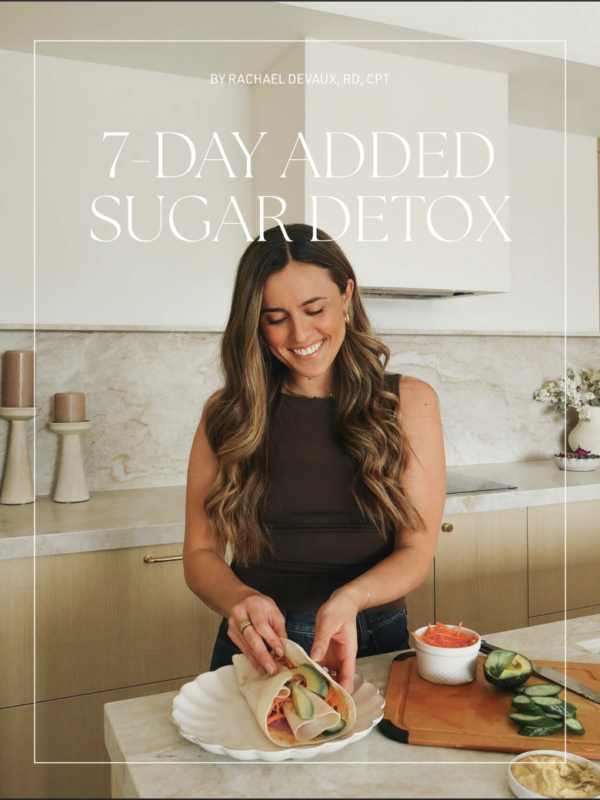
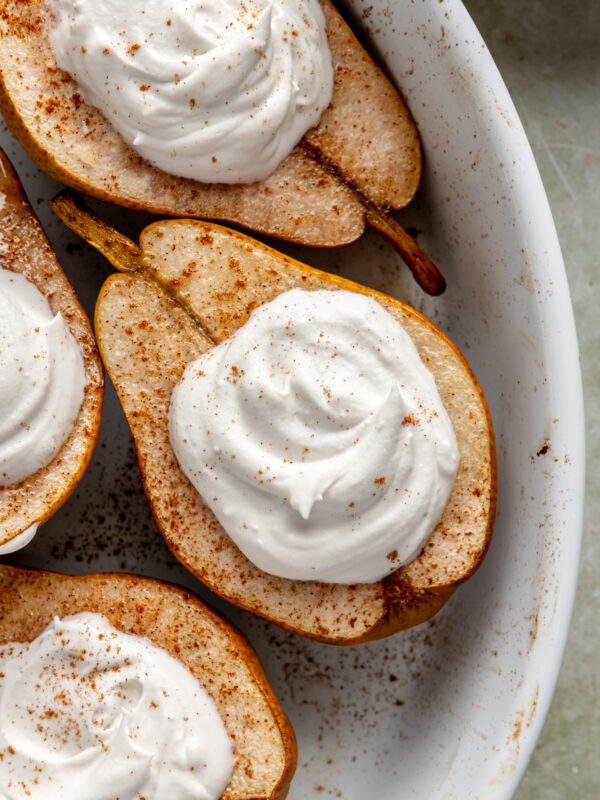







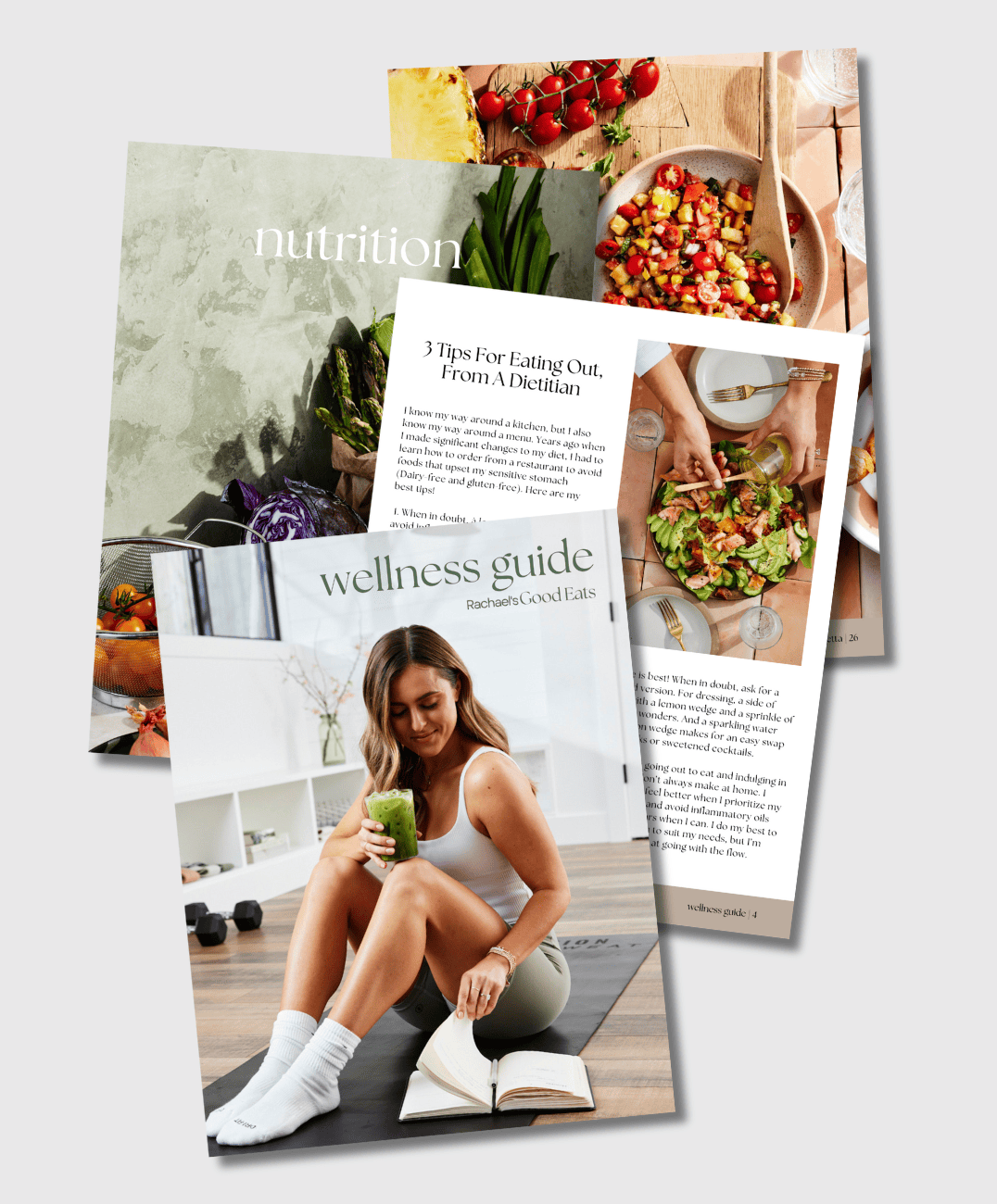
I know this is way later, but everything she took out (including things in protein powders) was a FODMAP. So, if you have bad ibs or just bloating please look into the Low FODMAP way of eating. It really is helpful and not as strict as one might think. Good luck.
Hello Rachael!
Thank you for sharing your story! I also suffer from bloating! Ugh! I have been taking Garden of Life Meal replacement protein powder for years with a smoothie. Until recently I started adding Vital Proteins Collagen peptides into my tea in the mornings, but I have been bloated! I’ll do the peptides in the morning (in tea) with gluten free oatmeal and I’m bloated! and for hours afterwards, I’m not actually hungry. Then when I’m sort of hungry I’ll drink the protein smoothie. I’m wondering if you any advice about this 🙂 Thank you!! I appreciate it!
Omg, can’t believe I found your blog! I have the same exact issue you are facing! Has been feeling bloated and uncomfortable in the upper abdominal lately after meal. Feeling great in the morning and getting worse reaching end of the day. I have been to 3 different doctors (Western and Eastern) suspected GERD. None of the medicines help. Will definitely try on the diet you recommend in your post! How are you coping with that now in 2020? Hope you are well!
HI rachel!!! just wanted to say i loved this article!! im glad im not the only one who feels like almond butter makes them bloated haha. im bummed cause i love it but i definitely find when i eat a few servings a day ( i am a creature of habit haha) i feel swollen, especially in my face!!! love your work girl, thanks!!
I just came across this article and oh man, this hit home. Your symptoms are exactly what I’ve been experiencing (for way too long).
I definitely need a food intolerance test. Where do you get one? Do you go to your doctor or ask an outside source?
Lastly, the protein topic is super interesting to me as well. I would have no problem getting rid of my protein power, but my fear would be not getting enough protein, which I struggle with so much because I really just don’t enjoy the taste of meat. My question is how much protein is really needed to build muscle? Most of what you see is a gram per pound, which has always seemed excessive to me, given im 5′ 11″ and weigh about 150, I very rarely reach this. I train 4-5 days a week though and don’t want to deprive myself of anything it needs.
I track macros (I find it enjoyable) and currently aim for about 130 grams of protein a day. Would you suggest lowering it?
Thank you!
I’m so happy I found your Instagram and website today 🙂
Nicole, great to hear from you! I used Pinnertest food intolerance test, but there are many out there. If you’re worried about getting enough protein in your diet, I suggest getting collagen peptides– super easy to digest, I love them! Unfortunately, I’d need to know more info before giving you any specific nutrition advice. I hope you understand!
Hi Rachael! Wow! What a journey! I used to do a LOT of protein powder myself, and have backed off it quite a bit. I definitely think that real food is the key. And you’ve had to eliminate a lot of things, but if you feel good — it’s totally worth it! Thanks for sharing this, lady! 🙂
Wow, this was exactly what I needed to read! I have been struggling with bloating for years now and I have tried so many different diets to try to heal my guy, but nothing has worked. I will definitely try what you said and really stick to it! Thank you so much for the guidance and advice!!
xoxo,
Madison
I love reading this! It is so valuable for me to read what others go through on their mission to feel like their best self.
I’m a plant-based eater so I know how much foods like cruciferous veggies and legumes can cause digestive upset. I prefer to soak and cook my own beans and that makes a world of a difference. I can eat my home cooked kind regularly with no issues.
I’ve recently been picking up on the benefits of healthy fats. I’m trying to eat eggs a bit more for that reason. I notice I’ve been breaking out immensely though. Do you ever notice fats breaking you out? I’m not sure if the sudden integration of eggs is to blame or something else.
Great article!! I never really had digestive issues until about a year ago. It’s been a journey to discover what works for me and more importantly what doesn’t. It’s definitely an individualistic approach. Thank you for sharing! One question – do you notice any issues with workout supplements like BCAAs or pre workout?
Hi! I wanted to now why you removed crucíferous veggies ?